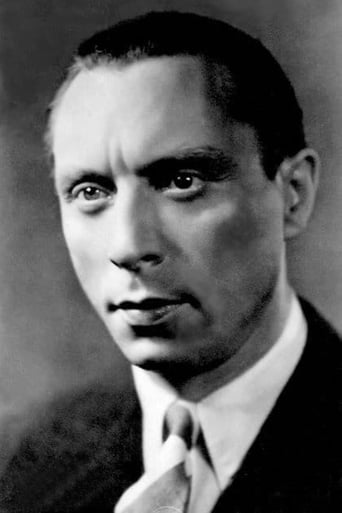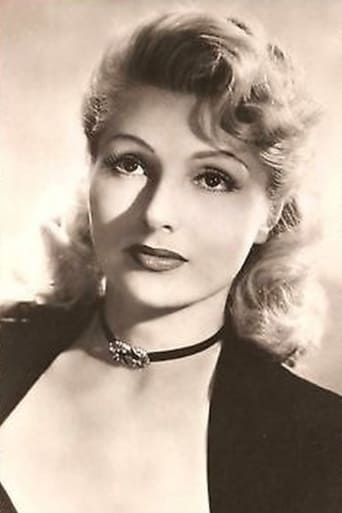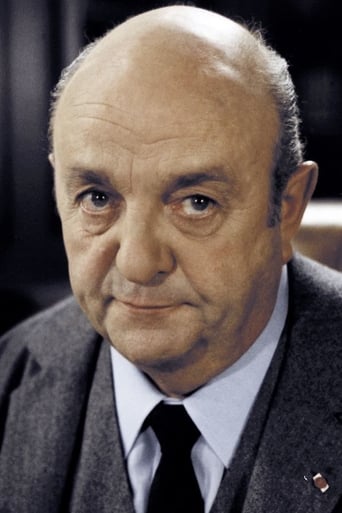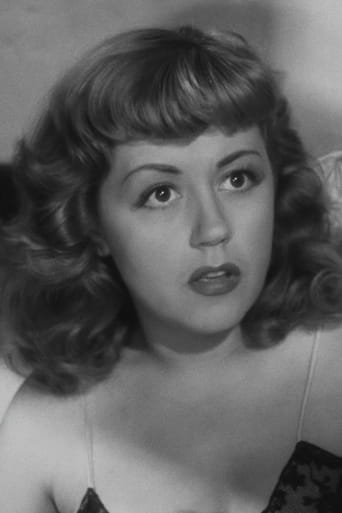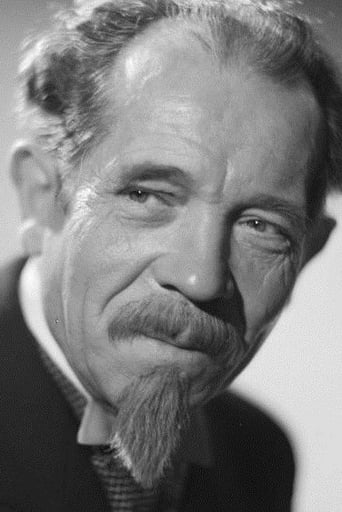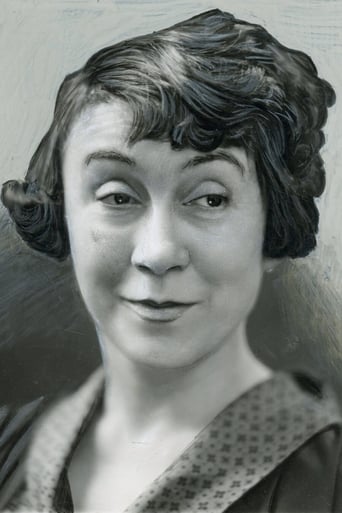ElMaruecan82
To non-French audience, "Quai des Orfèvres" carries the same resonance than 'Scotland Yard' for British people as the legendary Police headquarter Police in Paris, preceded by number 36, and the setting of the most memorable criminal resolutions that nourished French pop-culture of the early century: Landru, la Bande à Bonnot etc. So as the title indicates, Henri-George Clouzot's classic, is a police procedural, but there's more to see in the film besides the realistic and thrilling elements of a crime investigation.What strikes first and what I immediately associate with the film is the score, the musical version of the main song "Avec son Tralala" which is continuously sung by Jenny Lamour (Suzy Delair) during the first act. What begins as a simple ballad turns into a smash hit, joyful, naughty and unbelievably catchy, to a point I kept it stuck in my head for many days after watching the film. The 'tralala' is a sort of childish onomatopoeia referring to the beautiful behind of a Spanish gypsy girl, who didn't need 'maracas' to charm men, only her magnificent, natural assets. The music remarkably contrasts with the overall tone of the film but efficiently establishes the setting of the investigation: the music-hall, a decadent and permissive world. Henri-Georges Clouzot has an endearing quality, his thrillers are appealing to universal audiences but they're always set in a particular world: truck drivers, boarding school, a small village, his movies are an opportunity to discover a slice of French life in a determined era. And it's precisely for his ability to be so specific that his films can work as universal explorations of the human soul. The music hall or showbiz is the perfect setting to crystallize such emotions as ambition, jealousy or cynicism. They are also mirror the vices of a society, through the character of Jenny who makes eyes on anyone who can help her to succeed in theater, to Maurice, his mild-mannered and jealous accompanist and husband, played by Bernard Blier, and Dora, Simone Renant as the cynical charm photographer, friend of both. Yet the most despicable of all is Brignon (Charles Dullin), an old lecherous businessman, who visits Dora just to admire some naked girls. With Dora, Maurice and Jenny, the film seems to open on a triangular love, a plot device cherished by Clouzot.But as usual, clichés are misleading, Dora is obviously not interested in men, but ready to help their friends, Jenny loves her husband and Maurice is the kind of guy who can make death threats but is not so hot when it comes to pull the trigger. These flawed but realistic characters are inevitably put in a tricky Hitchcockian situation. Jenny has a secret rendezvous at Brignon's house but the date turns sour and she knocks him out with a champagne bottle and escapes. Maurice finds his address and goes confront him in the house, before ensuring a perfect alibi, but when he enters his house, he finds him dead and when he leaves it, his car has disappeared. This might suspend some viewers' disbelief, but nothing is hazardous in the film. To make things even more intricate, Dora goes at Brignon's to erase the fingerprints, take Jenny's fox scarf and while she's there, knocks the dead man in the chest, in one of the most cruel and memorable scenes from any Clouzot's film. Last revelation, the man was shot with a bullet in the heart, which makes four people who went to the victim, four potential suspects. The plot starts like a reverse whodunit, but at the end, it's still a whodunit. Maurice is supposed to go the music hall, only when he comes back, he raises suspicion by being the only one not to notice one flaw in the show, Jenny went to her grandmother at the last minute, and Dora left a blonde hair on the crime setting.Still, the film would never have reached its legendary status without Jouvet as Inspector Antoine, a fifty something inspector, tall and lanky, with cut head and sharp eyes, he's intimidating without being unfriendly and cool without fooling anyone, the Anti-Columbo with the same likability. As soon as he makes his entrance, he's the one driving the action and all the characters turn to a passive status while he confronts them to their contradictions. The genius of "Quai des Orfèvres" relies essentially on the writing, the way the character interact, the social discussions, the way each clue is obtained after a clever trick. Pierre Larquay, one of Clouzot's regulars, plays a taxi cab driver that took a blond blonde to Brignon's, but while some people genuinely go to the police, the driver refuses to be a stool. The last exchange with Antoine before he would finally confess is simply delightful, and a clever demonstration of police procedural à la Française. I wondered if the driver wasn't meant to make up for the villagers of "The Crow" and the whole paranoid and denunciation-inducting atmosphere. One even has to wonder if the film doesn't carry some dark and pessimistic undertones inherited from the German Occupation, which contributed to the deterioration of the Police's image. But the film doesn't make statements about who's right or who's wrong, it doesn't manipulate our empathy but rather offers us a gallery of characters who're all identifiable by their jobs: cab driver, policemen, singers, photographers, and this is why "Quai des Orfevres" surpasses many French stories, like all Clouzot's films, it's a slice of people's life, a powerful social commentary, set during the Christmas holidays, which gives its final Dickensian flavor.Clouzot is the director who gave its letters of nobility to Popular Cinema, I'd rather watch one Clouzot film ten times in a row rather than any other so-called New Wave existential stuff.
Claudio Carvalho
In the postwar Paris, the accompanist pianist Maurice Martineau (Bernard Blier) is a jealous man from the upper class married with the ambitious singer Marguerite Chauffournier Martineau, most known by her artistic name Jenny Lamour (Suzy Delair), a woman with past from the lower classes. When the lecher but powerful Georges Brignon (Charles Dullin) harasses and invites Jenny for dinner promising a role in a film, Maurice goes to the restaurant and threatens Brignon. A couple of days later, Jenny tells Maurice that she is going to visit her grandmother in another town. However, her husband finds a piece of paper hidden in the kitchen with Brignon's address. Maurice goes to the theater to have an alibi and heads to Brignon's manor during the show with the intention of killing the old man. However, he finds Brignon's house open and the man dead on the floor. When he leaves the crime scene, his car is stolen and Maurice has to walk back to the theater. Meanwhile, Jenny arrives in the house of the lesbian photographer Dora Monier (Simone Renant), who is an old friend of Maurice and has a crush on Jenny, and tells Dora that she has just killed Brignon. But Jenny notes that she had forgotten her fur on the couch in the living room of Brignon's house and Dora takes a cab to retrieve the stole. Inspector Antoine (Louis Jouvet) is assigned to investigate the case and sooner he visits Jenny, Maurice and Dora to check their alibis for that night in the beginning of his investigation. "Quai des Orfèvres" is an amusing story of an efficient detective investigating a murder in a comedy of errors of the three lead suspects. Henri-Georges Clouzot is one of the best French directors ever and "Quais des Orfèvres" is another gem in his filmography. The witty screenplay has many twists and is supported by the magnificent cinematography in black-and-white and awesome performances. Bernard Blier, the father of Bertrand Blier, is perfect in the role of a jealous cuckold without confidence in his wife and self-respect. Suzy Delair performs an ambitious woman that has a past with lovers and wants to climb positions in the show-business, but loves her husband. Simone Renant is great in the role of a lesbian photographer. But who steals the film is Louis Jouvet, in the role of a detective that seems to be naive, but is capable to find the truth that each character intends to hide. My understanding is that Antoine might be gay since he does not like women. My vote is eight.Title (Brazil): "Crime em Paris" ("Crime in Paris")
jotix100
"Quai des Orfevres", directed by the brilliant Henri-Georges Clouzot, is a film to treasure because it is one of the best exponents of French film making of the postwar years. M. Clouzot, adapting the Steeman's novel, "Longtime Defence", shows his genius in the way he sets the story and in the way he interconnects all the characters in this deeply satisfying movie that, as DBDumonteil has pointed out in this forum, it demonstrates how influential Cluzot was and how much the next generation of French movie makers are indebted to the master, especially Claude Chabrol.The crisp black and white cinematography by Armand Thirard has been magnificently transferred to the Criterion DVD we recently watched. Working with Clouzot, Thirard makes the most of the dark tones and the shadows in most of the key scenes. The music by Francis Lopez, a man who created light music and operettas in France, works well in the context of the film, since the action takes place in the world of the music halls and night clubs.Louis Jouvet, who is seen as a police detective, is perfect in the part. This was one of his best screen appearances for an actor who was a pillar of the French theater. Jouvet clearly understood well the mechanics for the creation of his police inspector who is wiser and can look deeply into the souls of his suspects and ultimately steals the show from the others. In an unfair comment by someone in this page, Jouvet's inspector is compared with Peter Falk's Columbo, the television detective. Frankly, and no disrespect to Mr. Falk intended, it's like comparing a great champagne to a good house wine.Bernard Blier is perfect as the jealous husband. Blier had the kind of face that one could associate with the man consumed with the passion his wife Jenny Lamour has awakened in him. Martineau is vulnerable and doesn't act rationally; he is an easy suspect because he has done everything wrong as he finds in the middle of a crime he didn't commit, but all the evidence points to the contrary.The other great character in the film is Dora, the photographer. It's clear by the way she interacts with Jenny where her real interest lies. Simone Renant is tragically appealing as this troubled woman and makes an enormous contribution to the film. Suzy Delair, playing Jenny, is appealing as the singer who suddenly leaps from obscurity to celebrity and attracts the kind of men like Brignon, the old lecher.The film is one of the best Clouzot directed during his distinguished career and one that will live forever because the way he brought all the elements together.

